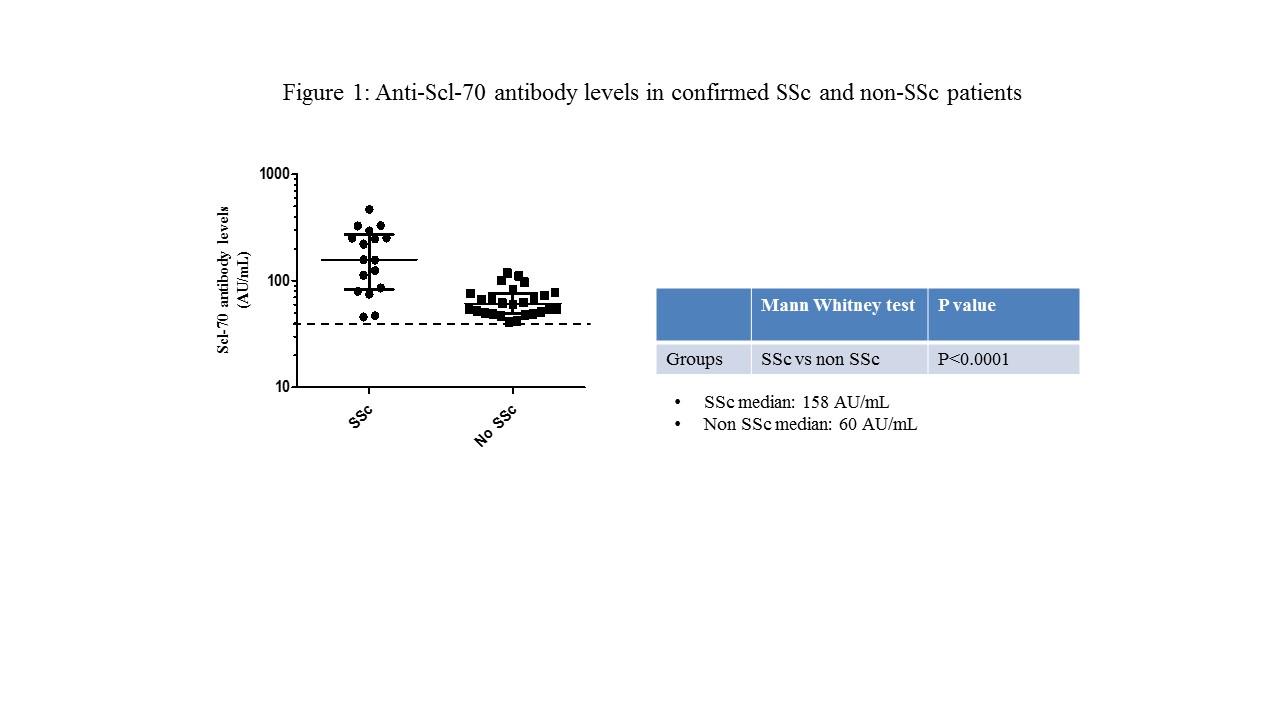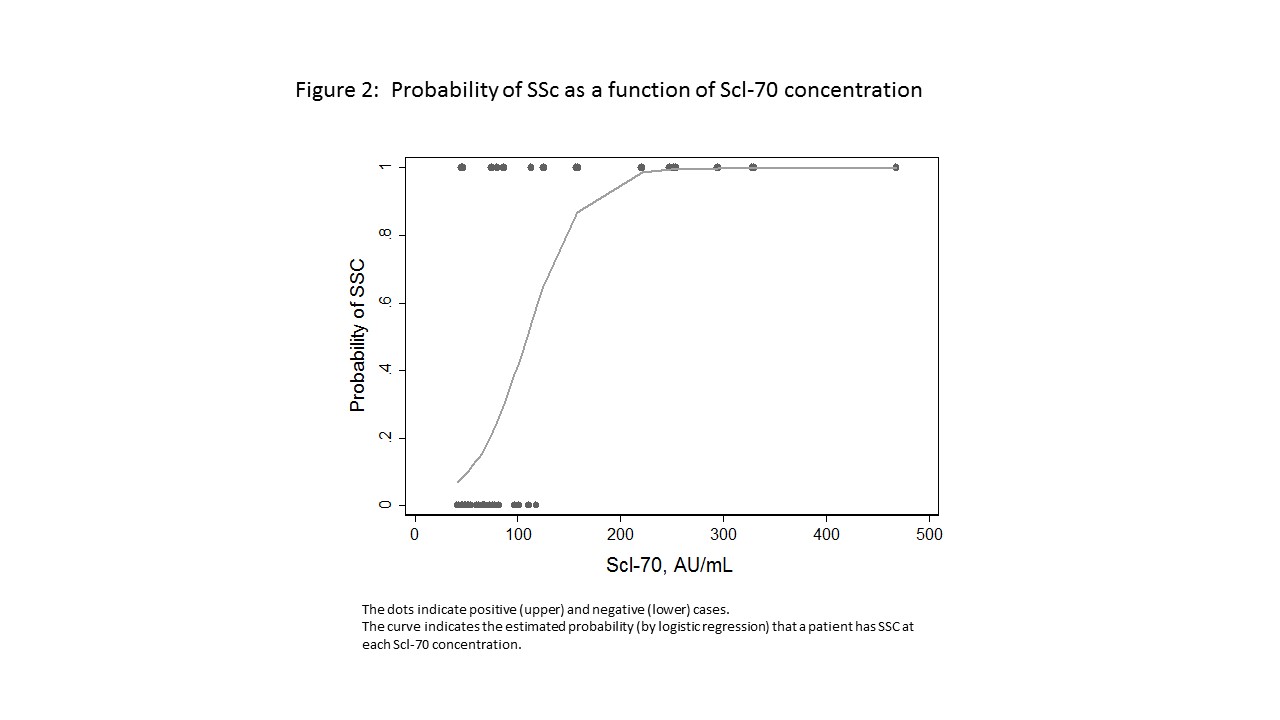Session Information
Date: Monday, November 6, 2017
Title: Systemic Sclerosis, Fibrosing Syndromes and Raynaud's – Clinical Aspects and Therapeutics Poster II
Session Type: ACR Poster Session B
Session Time: 9:00AM-11:00AM
Background/Purpose: The 2013 classification criteria for systemic sclerosis (SSc) provide 3 points (towards a 9 point diagnosis) for patients who have an anti-topoisomerase I (anti-Scl-70) antibody. From a clinical practice standpoint, in the absence of other stigmata of SSc, the significance of the presence of an anti-Scl-70 antibody result remains unclear. The purpose of this project was to determine the clinical relevance of anti-Scl-70 antibodies detected by multiplex testing for patients receiving routine clinical evaluation at our institution.
Methods: Results for patients positive for anti-Scl-70 antibodies (cut-off: >41 AU/mL positive) at the University of Utah over a period of 8 years were retrospectively reviewed. All patients with a positive anti-Scl-70 antibody had a manual chart review for other SSc classification criteria information.
Results: There were 3331 unique patient samples evaluated during the investigation period, 51 (1.53%) were positive for anti-Scl-70 antibodies with 5 patients lost to follow-up. Of the available anti-Scl-70 antibody-positive patients (n=46), 17 (37%) met the diagnostic criteria for SSc, 11 (23.9%) were diagnosed with other types of lung disease [sarcoidosis, pulmonary embolism, empyema, and constrictive bronchiolitis], the remaining patients had immune-mediated diseases [n=12] or no reported clinical diagnosis [n=6]. All anti-Scl-70 antibody patients with SSc were also positive for antinuclear antibodies (ANA) compared to those without disease (100% vs. 46.4%, p<0.0001). The median level of anti-Scl-70 antibodies was significantly higher in patients with SSc compared to those without disease [158 AU/mL vs. 60 AU/mL, p<0.0001, Figure 1). Using logistic regression, an estimated probability of 1 for SSc was attained at anti-Scl-70 antibody level of approximately 200 AU/mL (Figure 2).
Conclusion: In this retrospective study, a positive ANA test and significantly elevated titers (>5x cut-off) of anti-Scl-70 may be predictive of SSc. The role of underlying lung pathology on the pathogenesis of developing a low titer anti-Scl-70 antibody without an ANA may warrant further study.
To cite this abstract in AMA style:
Tebo AE, Schmidt RL, Frech TM. Significance of Anti-Topoisomerase I Antibodies in Routine Clinical Testing [abstract]. Arthritis Rheumatol. 2017; 69 (suppl 10). https://acrabstracts.org/abstract/significance-of-anti-topoisomerase-i-antibodies-in-routine-clinical-testing/. Accessed .« Back to 2017 ACR/ARHP Annual Meeting
ACR Meeting Abstracts - https://acrabstracts.org/abstract/significance-of-anti-topoisomerase-i-antibodies-in-routine-clinical-testing/


